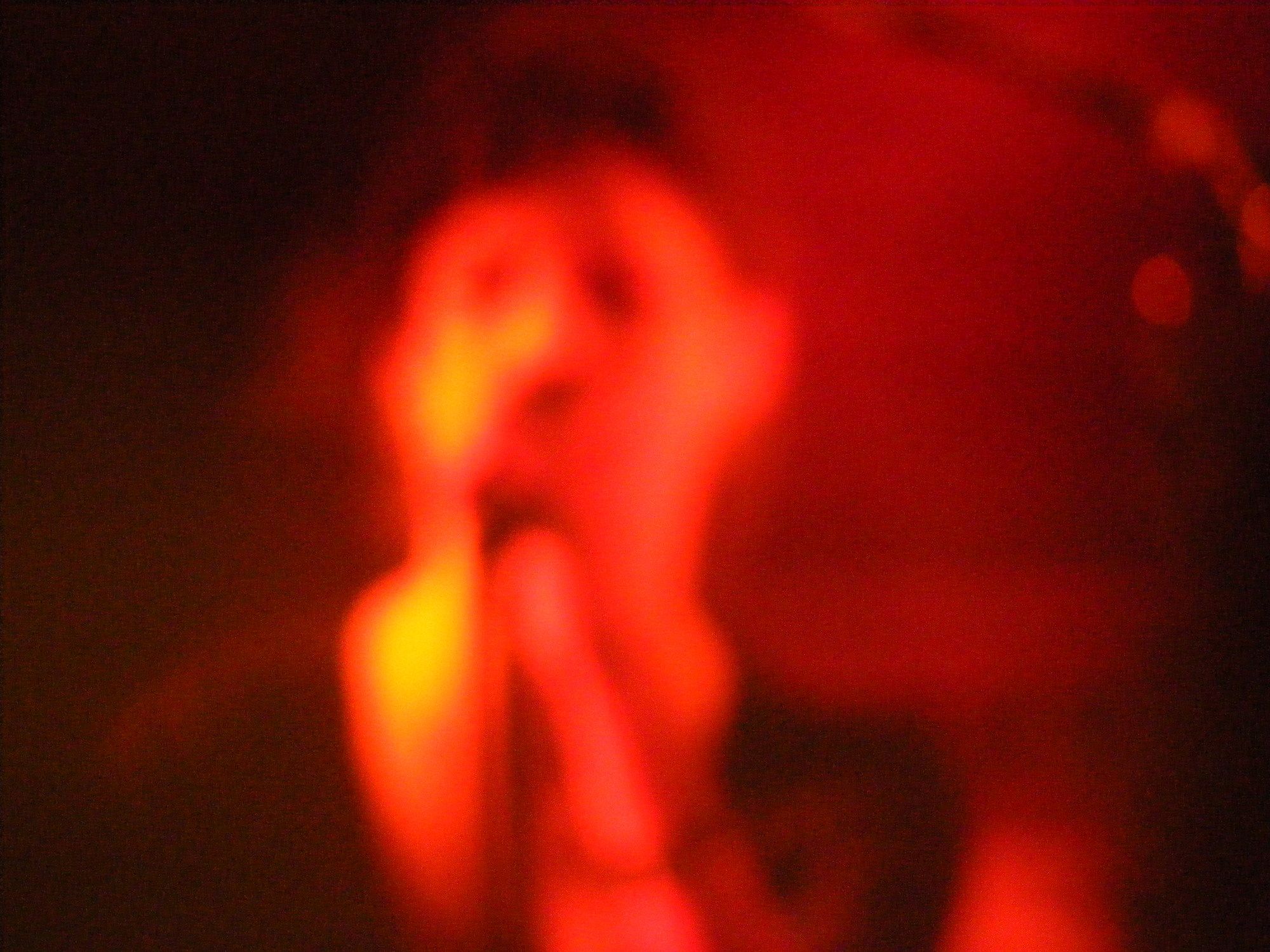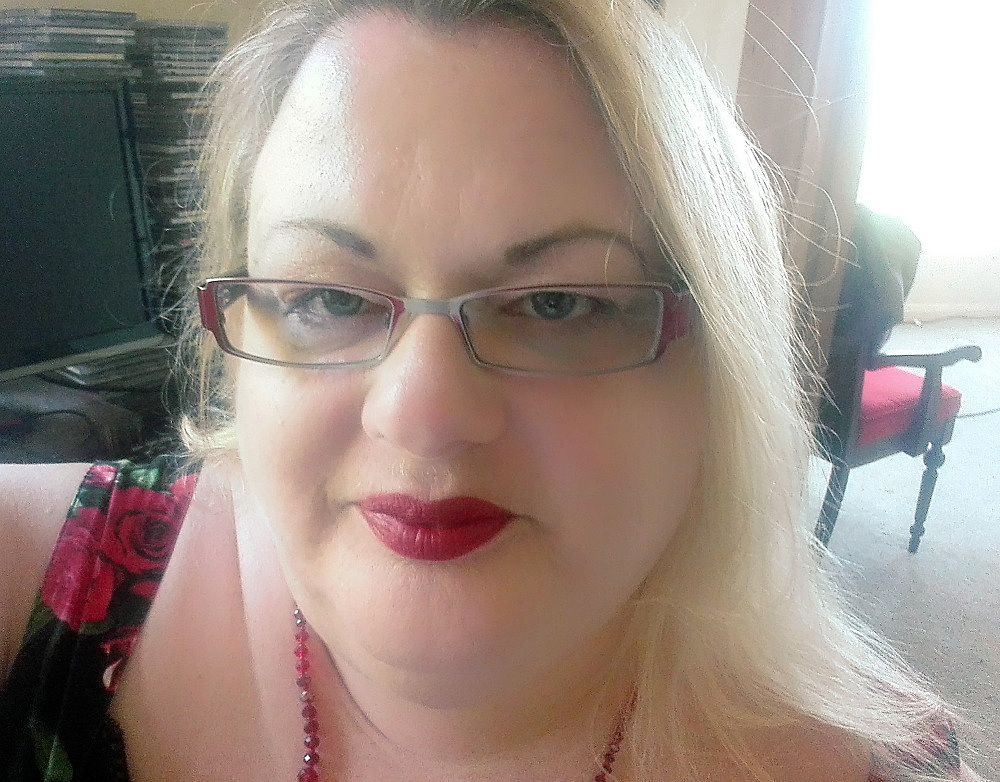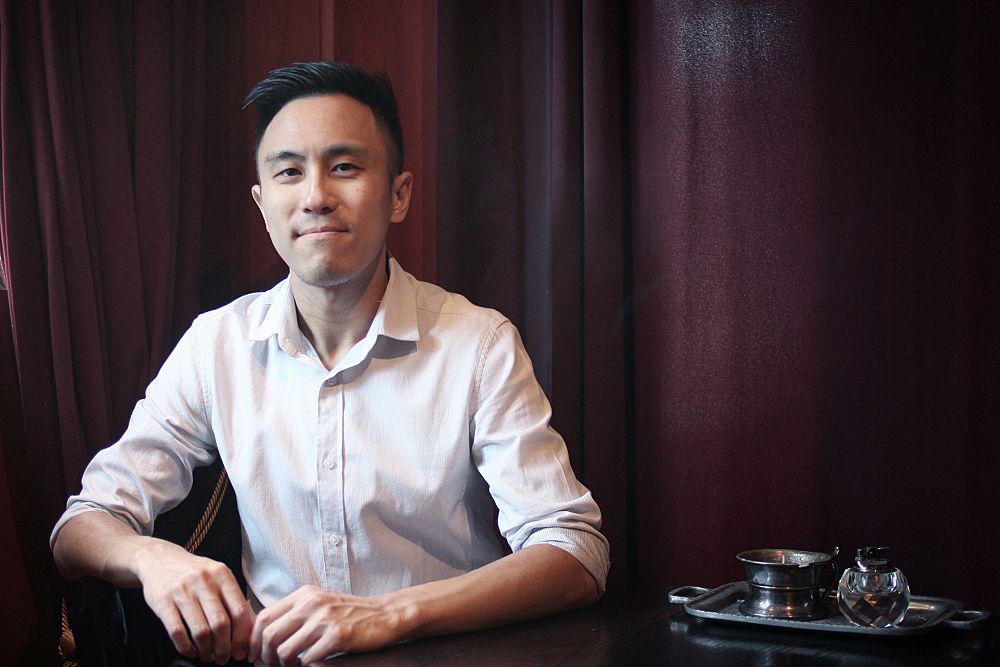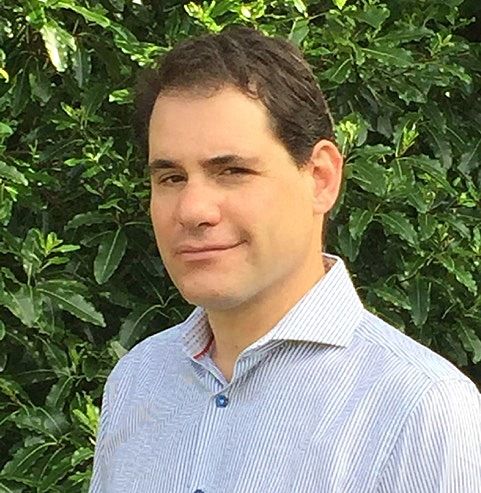Distinguishable by Ear: New Zealand Writers on Voice
In a three-part series, New Zealand writers tell us how they use different aspects of craft in their writing. Our first peek inside their toolbox: Voice.
The arrival of inspiration can seem magical or even electric: as the saying goes, we are ‘struck by an idea’ as if it were lightning. While ideas may seemingly come from nowhere, to harness inspiration – to make something beautiful or devastating or funny – involves craft.
In this series, New Zealand writers tell us how they use different aspects of craft in their writing. The three-part series starts with voice, which can be loosely defined as the personality or tone of a piece of writing or character (the other installments are tension and lyricism). We asked each writer how they use these aspects of craft in their work – in essence a peek inside their toolbox. Here’s what they said.
Hinemoana Baker
Antony Millen
Helen Rickerby
Chris Tse
Bryan Walpert
Hinemoana Baker
You have an actual voice, and not just a metaphorical one. I’m writing as a performer of text, here. I’ve just spent an evening with a poet of a similar persuasion, Ulrike Almut Sandig, discussing exactly this thing: the voice – it’s peculiarities in the body and in the room, and the ways in which, over time, we somehow become convinced that the voice we have, the one we were born with, is not enough. For me and for her, the voice is a kind of printing press and the stage is, what? Well, it’s another form of distribution. We ask the words to tread the boards.
This thing of the page vs. the stage – which is better, text on paper or sounds in the ear/air? Why do some page-poets think they’re so shit hot when they are dry and boring at festivals? Why do some spoken-word performers and orators seem to be allergic to subtlety? I think these are absolutely the least interesting questions we could be asking. How about: what could the text gain from me memorising it and performing it without hard copy? What could it lose? Does my audience deserve to be entertained? Why/why not? Why does my voice disappear when I lock my knees?
Here are a few other questions we might ask of ourselves and our writing when it comes to (literally) voicing our work:
- What’s the rush?
- What would happen if I cut a stanza or paragraph free of the rest of its poem or piece and treated it like a chorus, allowing it to return like a refrain throughout my whole reading? Even in the middle of completely unrelated other texts?
- Could I read this poem from bottom to top while someone else reads it simultanously from top to bottom?
- Can I really hear myself in the stage monitors or did I just say that because the sound engineer seemed really stressed?
- Who says I can’t just hum the whole poem?
- What effect does drinking orange juice just before a reading have on the production of my saliva?
- Where did I put my fucking water bottle?
- How does a microphone stand work? No, seriously.
- Why do singing teachers and voice coaches recommend keeping your butt muscles strong?
- Does this text have to exist only in the language it’s in currently?
Reading or otherwise voicing your own writing aloud isn’t everyone’s Stein of Bier. Some days it feels like broadcasting every one of your vulnerabilities at an unbearable volume. As Laurie Anderson says – or at least, as the internet says Laurie Anderson says – ‘People only stutter at the beginning of the word. They're not afraid when they get to the end of the word. There's just regret.’
Oranges and butt muscles aside, though, I’d encourage writers to perform more, or at the very least, to read their own work aloud to themselves.
Oranges and butt muscles aside, though, I’d encourage writers to perform more, or at the very least, to read their own work aloud to themselves. It does important things to and for your work when you make it into audio, or audio-visual. And in turn, I believe speaking or singing your own words to an audience can affect your body in profound and strengthening ways.
I walked to the underground station at Mehringdamm tonight in the rain, after spending three hours with Ulrike doing voice and breathing exercises and asking each other existential voice-related questions. It was four degrees, I was inadequately dressed, and everyone in Berlin seemed an order grumpier than usual. I had no umbrella, but I was almost skipping. I even got a smile and an ‘Abend!’ out of the local greengrocer, sheltering under his awning between the kiwifruit and the artichokes.
Antony Millen
My colleague prattles on about voice whenever we discuss students’ creative writing papers as if everything hinges on it. I’ve argued that voice is a minor part of the marking criteria. It’s easier to consider structure and other elements of character and conventions. But he devotes entire lessons to voice, borrowing students from my class and standing them at the back of his room, his students guessing their identity based on voice alone.
To do so, they need to recognise the correct combination of tone, timbre, rhythm, pace, volume, and pitch, as well as accent and emphasis. Or they recognise one distinctive element – a particularly deep voice or a specialised pronunciation of a diphthong. They do this by ear, without much analysis – they either recognise the voice or they don’t.
Whatever voice is, it is distinguishable by ear. More than style, more than use of poetic devices, voice is infused with personality and, while it can be impersonated, it can’t be fully duplicated. In writing character voices I listen for the way they speak with my internal ear, and record their dialogue. I listen for the rhythm of their speech, though I don’t attempt to reproduce their accent on the page. I admire John Steinbeck who populates his dialogue with apostrophes and misspellings, conveying precisely how his characters pronounce their words. I don’t have the skill to do that, instead writing dialogue in an orthodox fashion, allowing the voices to be co-constructed with my readers.
I then include catch-phrases or repeated words that might distinguish character voices. Only a few of these are needed. In the X-Men comic books I used to read, Wolverine addressed people as, ‘Bub,’ Storm cried out, ‘By the goddess!,’ and Nightcrawler called Kitty Pryde, ‘Fraulein.’ I can’t recall what Cyclops used to say. He was a boring character – perhaps because he didn’t have a catch-phrase. When I revise, I ask of each piece of dialogue, ‘Would this character say that and in that way?’
There is risk with voice and there needs to be. Otherwise, everyone sounds the same.
Voice also needs to be considered for narrative, both in fiction and non-fiction. An important aspect of New Zealand’s English curriculum is ‘purposes and audiences’ and this ties in with voice. Last year, I applied for The Spinoff’s Surrey Hotel Residency. The website’s invitation was written in a clever, fun-loving, slightly sarcastic vein. Normally when applying for such things, we write the standard stuff – bio, what we hope to accomplish, summary of our recent writing achievements – all in a formal style. But for The Spinoff I took a risk, writing in a voice I thought complimented that in the invitation, still including the content required, but with added comments, including my own attempts at humour.
There is risk with voice and there needs to be. Otherwise, everyone sounds the same.
Best advice I’ve ever received about voice: never use a thesaurus. Your writing voice should consist of the words you know and use. That’s from that same colleague always prattling on about voice. I think he knows what he’s talking about.
Helen Rickerby
As a fairly instinctual poet (and person), I have to admit that writing in an analytical way about my craft is a bit intimidating. Usually I muddle along, discovering how to write each new poem by writing it, and often rewriting it. Poetry is an intellectual activity, but a lot happens in the subconscious part of my brain, almost, ironically, beyond language. So, trying to articulate what I’m doing has been a curious process, one of retrospection mostly. It’s been interesting nevertheless, though it might mean now I will have to do things differently in order to surprise myself!
I might go so far as to say that the voice of a poem is the heart of the poem. Or perhaps its blood. Or maybe it is truer and more powerful to simply say that the voice of a poem is its voice. Each poem has its own way of speaking: tone, sound, personality; the types of words it uses, its grammar, its silences. Of course it’s the poet who makes those decisions, rather than the poem, but it doesn’t always feel like that.
I know I’m not alone in feeling sometimes that, despite having written hundreds of poems, I don’t know how to write a poem. It’s really that I don’t know how to write this poem… And that is often to do with getting the voice right.
I know I’m not alone in feeling sometimes that, despite having written hundreds of poems, I don’t know how to write a poem. It’s really that I don’t know how to write this poem, the one I am writing or about to write, because I haven’t written it yet. And that is often to do with getting the voice right. Some poems begin as a few lines with their voice already attached. If the poem starts with an idea or something more abstract, it can be harder to get the right voice. I’ve almost finished writing a new poetry collection, and for several of the poems it took me effort to find the right voice; and one in particular, about an ancient Greek woman philosopher, still hasn’t quite found how it wants to talk – or, rather, how I want it to talk – despite a page full of words.
The voice of the poem isn’t the same thing as the voice of the poet – even when the poem is apparently autobiographical. This is especially complicated when the narrator of the poem is someone other than the poet, a character. Biographical poetry (aka verse biography) has become a strong interest of mine, after I realised I was writing it and that lots of other poets do too. Many biographical poems are written in the first person – as are most of mine in My Iron Spine (HeadworX 2008) – and so are, arguably, poetic fictional memoirs. When that book came out some people said I had given voice to the women I had written about, women who had often been forgotten by history. But I was aware of the tension: while I was trying to construct for them a voice that sounded plausible and I was trying to not betray who they were; I knew it wasn’t their voice, it was my version of their voice. I knew I was making them characters, puppets even.
As I’ve continued writing biographical poems, I’ve further explored this tension. For example one recent poem, ‘Ban Zhao (45–c. 116 AD)’, uses multiple voices (including my own, Ban Zhao’s voice via translated quotations from her writing, my version of her voice and the authoritative voice of dictionary definitions) to explore the difficulties of recreating or understanding a person from another time, place and culture. And of course a poem doesn’t have to have just one voice, or be consistent or even coherent.
Conversely, we often talk about a writer ‘finding their voice’, by which we mean their characteristic way of writing. I’ve just finished a biography of Angela Carter and she was quoted as wanting to find her own unique voice – and she certainly did! The writers whose poetic voices I admire are too numerous to name, but a couple who spring to mind are Anne Carson, whose intelligent voice with frequent arch humour is a great inspiration; and Anna Jackson, whose poetic voice usually contains both whimsy and seriousness at the same time.
Chris Tse
I’ve had a rocky relationship with the concept of voice as a writer. For me to write about voice, I must acknowledge the many varied voices that make up our national literature – and in particular the under-representation of certain voices. This jigsaw puzzle of perspectives has greatly contributed to how I began to find and develop my own voice.
When I began to seriously consider poetry as a creative pursuit, I would also (over)think about what type of writer I should/would be. I took my first creative writing class as an undergraduate in 2002 and would eventually complete my MA at the IIML in 2005. Back then there was a howling absence of contemporary Chinese New Zealand voices being published. Alison Wong was the only writer I knew of but, even then, her first book of poems, Cup, would not appear until 2006, and her acclaimed novel As The Earth Turns Silver would follow in 2009.
But there was a conflict in me – did I, as a young writer, need a Chinese voice to model myself after or to provide a point from which I could chart my own path as a writer?
But there was a conflict in me – did I, as a young writer, need a Chinese voice to model myself after or to provide a point from which I could chart my own path as a writer? Could I use this lack of Chinese voices to my advantage to not be trapped by others’ expectations? In asking these questions over and over, I settled on something that makes me want to turn back time and shake some sense into 20-something Chris: I didn’t want to be ‘a Chinese writer.’
First, I didn’t want to be put in a box that I didn’t think I could climb out of. Secondly, the under-representation of the Chinese New Zealand experience in our literature suggested to me that perhaps there was a lack of interest in such stories – it seemed futile to write about such things. Like I said, mid-2000s Chris really needed a stern talking to.
Thankfully for me, my MA classmates and my teachers that year gently guided me towards the realisation that these stories were important, and so I set about exploring my family (and New Zealand’s) history to write the poems I had been reluctant to write.
In writing these poems, I also decided that I would put aside my own personal experiences (I didn’t feel they were particularly noteworthy) and instead concentrate on others’ experiences, namely those of my great-grandparents, my grandfather and his children. The hardship, discrimination and pain they had endured were, in my eyes, so much more significant. In doing so, I had to shapeshift ‘my’ poetic voice to represent family members and – upon learning about the tragic story of Joe Kum Yung – historical figures. My attempts at poetic disguise are never going to be 100% accurate or ‘true’ – they are my voice in costume, a facsimile of another person’s feelings and experiences. But I hope that they help the reader to suspend their disbelief for just a moment and glimpse into another time or place.
My attempts at poetic disguise are never going to be 100% accurate or ‘true’ – they are... a facsimile of another person’s feelings and experiences. But I hope that they help the reader to suspend their disbelief for just a moment and glimpse into another time or place.
Of course the content of my poems dictated what sort of voice I would employ. For How to be Dead in a Year of Snakes, a book about paying respect to the dead and acknowledging a dark moment in our collective past, the many voices I used were often solemn, heavy and direct in their reflection of the events.
I knew that after Snakes I wanted to change things up a lot, to allow myself to revel in irreverence, and incorporate jokes and flippant one-liners. The lightness of tone in my more recent output doesn’t mean I’m not taking things seriously. I like to think of these snarky little poems as being like Trojan Horses, chipping away at a reader’s defences before unleashing that stunning blow to the head and/or heart.
More recently, I’ve started writing autobiographical poems, but I still obscure the ‘I’ of the poems by using different voices and characters. In some poems, it’s a way for me to have some fun after writing about dead Chinese people for what feels like a lifetime, but it also allows me to distance myself from some real and difficult events. That separation is often necessary for me to be able to put the words on the page or to read them out loud in public. By using these voices I’m slowly learning how to be a more courageous writer and coming to terms with what I’m comfortable with revealing about myself. I hesitate to say that the voices employed in my newer poems are all facets of the ‘real’ me, but considered together – a self-harmonising Imogen Heap-esque vocoder chorus – they’re steps in the evolution of my voice as a writer.
Much is said about the importance of representation of minority voices and communities in literature and the arts to inspire younger generations. At the Ockhams last year, before the ceremony kicked off, a list of previous winners appeared on screen. When Alison Wong’s name scrolled up, I felt a surge of excitement and pride. It was at that moment that I didn’t feel like a fraud being there – not a sense of ‘belonging’ per se, but a stanch determination to ensure that we have more of our names up there in the future.
Bryan Walpert
Voice is ground zero for so many poetic ills that attention to it can be surprisingly curative, if you’re willing to give up finding your voice in favour of tossing it. Like a ventriloquist, you might hardly recognize what it is you have to say. The voice that comes out of a dummy’s mouth not only sounds completely different, but comes at the world differently than you do. The dummy becomes foil to the guy pulling the strings, the way Charlie McCarthy acted as a foil to Edgar Bergen or the way the eponymous speaker in Carol Ann Duffy’s poem ‘The Dummy’ says to his ventriloquist, in critiquing his too familiar joke, ‘You can do better than that, can’t you?’ Many poems can.
I think we start out imagining voice to be some sort of as yet undiscovered style. But if style is one aspect of voice, style is in the end married to a point of view on the world. Poet and critic John Ciardi got to this idea indirectly through what he called the ‘Sympathetic Contract,’ which says a reader should find a poem’s attitude toward its subject emotionally reasonable (my phrase, which might at first seem an oxymoron), in terms both of the sort of emotion and its volume. A long poem in florid language lamenting the death of one’s pet bunny when one turned four is likely to break Ciardi’s contract, as many readers will cringe at the sentimentality, which is not an expression of emotion but, rather, an excess of emotion beyond what a subject deserves.
It is one’s take on the world that is at issue in a lyric poem, and that take on the world... must of necessity manifest itself in the sort of language, structure, degree of distance that we take to be style.
Surely this is not simply a matter of style. That is, don’t blame the bunny poem for simply being too stylistically oracular: Poets haven’t escaped the oracular even in a time of cynicism and secularism – they simply find new ways to approach it, for instance the recent popularity of extensive anaphora to ground a poem absent of narrative context, a technique that is of course reminiscent of prayer. As a recent, local example of this technique, which is by now, internationally at least, well-trodden aesthetic ground, see the repetitions of ‘If you are…I am’ in Hera Lindsay Bird’s poems on this very site. Nor can you escape the binds of the sympathetic contract by inverting a voice of sentiment into one of irony – that, too, can seem emotionally unreasonable or cowardly.
Ciardi figured the call on our sympathies is what makes or breaks a poem, whatever its technical flaws. Maybe that’s overstating the case, but it is one’s take on the world that is at issue in a lyric poem, and that take on the world – that attitude, its sympathies, or its withheld emotion – must of necessity manifest itself in the sort of language, structure, degree of distance that we take to be style. So one doesn’t so much speak with voice as from it, which is what of course makes a poem lyric.
The feature photo 'Singer' by David Spend is used under a Creative Commons License. Read the other installments in this series: Tension and Lyricism.






